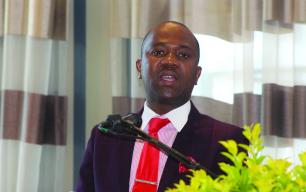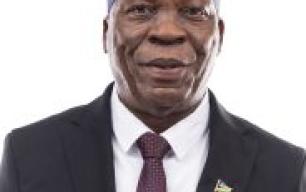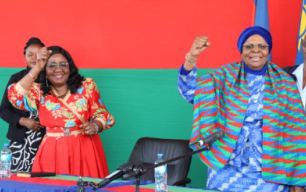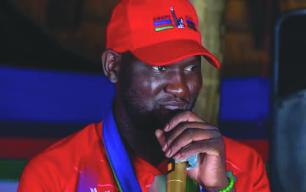Full govt perks for IPC’s Nashinge

- By Stefanus Nashama
The National Assembly this week confirmed that Immanuel Nashinge, the designated member from the Independent Patriots for Change (IPC), will receive the full entitlements of leader of the official opposition.
Earlier this year, IPC complied with the National Assembly’s requirement to designate a parliamentary leader, even as the party continues to challenge the legality of the official opposition office in court.
The party appointed Nashinge as the parliamentary leader of the opposition in the National Assembly while IPC President, Panduleni Itula serves as the overall leader of the official opposition in the entire country.
National Assembly spokesperson Sackeus Kadhikwa confirmed that the holder of the portfolio of official opposition leader, will receive the befitting perks in line with regulations which stipulates the remuneration and benefits for such role.
“The National Assembly has adhered to the provisions outlined in Government Gazette No. 7476 (4 March 2021), regarding the entitlements of the leader of the official opposition. As with all such provisions, administrative procedures are required to ensure full implementation and the National Assembly is actively facilitating these in accordance with the relevant regulations,” Kadhikwa explained.
The benefits includes, a salary increase (up to N$996,006 annually, based on past precedent), two taxpayer-funded vehicles (a sedan and an off-road vehicle) and a monthly fuel allocation of up to 1,080 litres (about N$14,000). Nashinge is also entitled to a full-time driver, bodyguard, personal assistant and an office at the National Assembly.
Furthermore, he must receive utilities of N$48,240, a transport allowance of N$94,400, a housing allowance of N$159,222 and a telephone allowance of N$864. These benefits will enable Nashinge to fully discharge his duties in parliament and strengthen the opposition party’s institutional presence.
The office of the leader of the official opposition was formally established in 2020, granting the position elevated status in parliament along with several perks. These benefits were previously enjoyed by the Popular Democratic Movement (PDM) leader McHenry Venaani when he held the position.
Meanwhile, IPC remains tight-lipped on whether it has or will accept the full range of perks associated with the portfolio. Furthermore, no formal confirmation was made as to whether Nashinge will take up the substantial benefits attached to the role.
While Itula is not in the National Assembly, this raises a key sticking point as to who should rightfully receive the perks between the two.
Itula has publicly rejected the official opposition office and its benefits, calling it unconstitutional and a creation of a presidential overreach. He demanded a legal explanation for the position and its accompanying perks. Sources within the party claim that the situation has sparked internal debate and external criticism. They suggest that IPC may ultimately accept them the benefits.
Nashinge maintained that pondering whether or not the party will accept the benefits is a no brainer, since such benefits are part of the government gazette. “It is what the document says. What do you want me to say? Go and read the document. Or do you want me to bring the document to the newsroom for you to read?” Nashinge queried.
Political analysts and rival parties have expressed concern that IPC’s dual leadership arrangement, splitting the role between Nashinge in parliament and him outside, could lead to confusion and create two centres of power within the party. Political analyst, Sakaria Johannes said there is confusion between what IPC as a party and National Assembly as a legislature wants.
“The issue here is that IPC seems not [to be] standing its grounds. I foresee Nashinge accepting the benefits. Just like they accepted the position of leader of official opposition in parliament,” said Johannes.
- 85 views










Comments